We all find ourselves in situations where we may not meet the expectations of those around us, and it's perfectly human to stumble sometimes. Apologizing is an essential step in mending relationships and restoring trust, allowing us to grow from our mistakes. In this article, we'll explore effective strategies for crafting a heartfelt apology letter that communicates sincerity and accountability. So, if you're ready to learn how to express your remorse genuinely, keep reading!

Acknowledge the mistake or oversight.
Mistakes can occur in professional settings. Acknowledging such oversights is crucial for maintaining trust and transparency. A missed deadline, like the recent project due on September 15, 2023, can disrupt workflow and create frustration. Recognizing the impact on team dynamics and individual contributions is vital. Taking responsibility for these errors demonstrates accountability and commitment to corrective measures, fostering a collaborative environment moving forward.
Express genuine remorse and accountability.
Acknowledging the disappointment caused by failing to meet expectations is essential in maintaining trust and relationships. Feeling genuine remorse demonstrates emotional intelligence, critical for personal and professional interactions. Taking accountability reflects personal growth and integrity, allowing for constructive feedback. Moving forward requires outlining specific actions aimed at improvement, reinforcing a commitment to future performance. Clear communication about these changes fosters transparency, cultivating a stronger foundation in the relationship. Apologies, when sincerely delivered, can lead to renewed understanding and collaboration, essential for progressing toward shared goals.
Identify the specific expectation that was unmet.
A recent project aimed at improving customer service response times fell short of expectations, specifically a targeted response time of under 24 hours. This lapse, occurring in October 2023, led to delayed replies exceeding 48 hours for some clients, causing dissatisfaction and frustration. The service team faced higher-than-anticipated workloads and insufficient staffing levels, affecting the timely handling of inquiries. Recognizing the impact on client relationships and trust, immediate action is being planned to address staffing shortages and streamline workflow processes, ensuring future adherence to established service standards.
Outline corrective actions and future preventive measures.
Apologizing to clients or stakeholders is crucial when failing to meet expectations. A sincere apology not only acknowledges the mistake but also reinforces commitment to improvement. Corrective actions can include implementing a project review process and assigning dedicated teams for accountability. Future preventive measures may encompass regular training sessions to enhance skills and streamline communication protocols. Moreover, utilizing project management tools like Trello or Asana can enhance task visibility and ensure deadlines are met more consistently.
Offer a solution or compensation if applicable.
In a bustling urban cafe, baristas engage in the rhythmic art of coffee-making, crafting each cup with passion and precision. The aroma of freshly ground beans fills the air, captivating customers who eagerly await their morning energy boost. Behind the counter, a skilled barista deftly operates an espresso machine, pulling rich shots that form the foundation of creamy lattes and bold Americanos. A cozy seating area invites patrons to linger, equipped with plump cushions and rustic wooden tables that encourage conversation and connection. Sunlight streams through large windows, highlighting the vibrant pastries displayed on the counter, each tempting treat a masterpiece of baked goodness. This inviting space not only serves quality beverages but also fosters a warm community atmosphere where creativity thrives and friendships blossom.
Letter Template For Apologizing For Failing To Meet Expectations Samples
Letter template of sincere apology for not meeting expectations in a project.
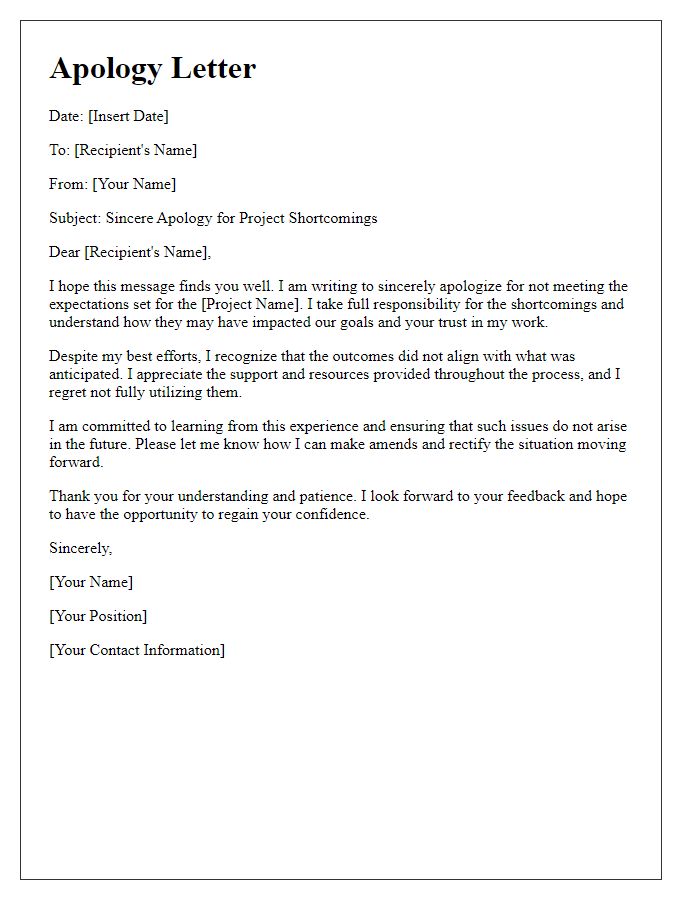
Letter template of regret for disappointing performance in a team assignment.
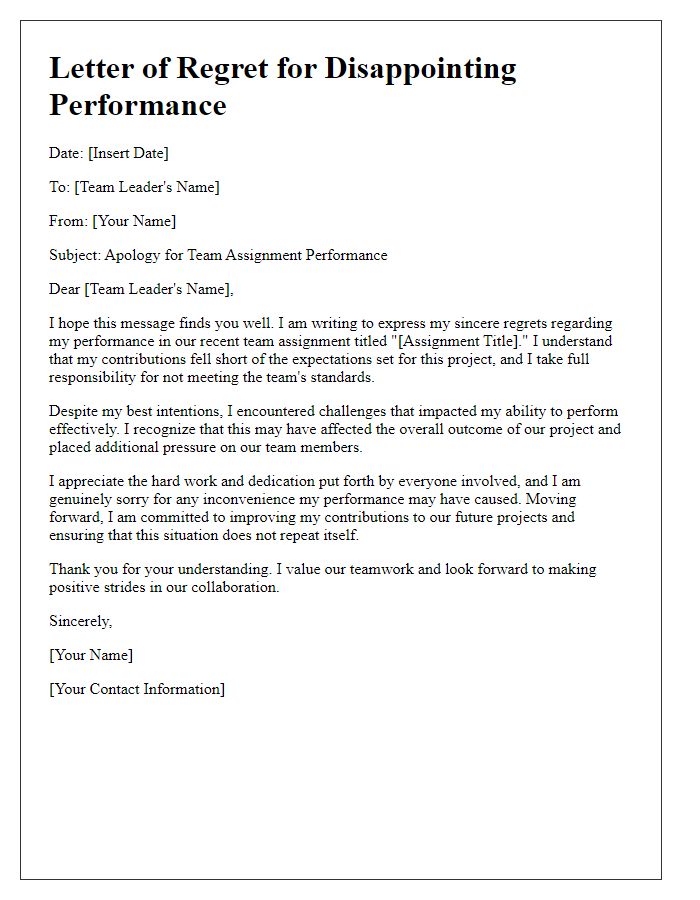
Letter template of contrition for not fulfilling responsibilities effectively.
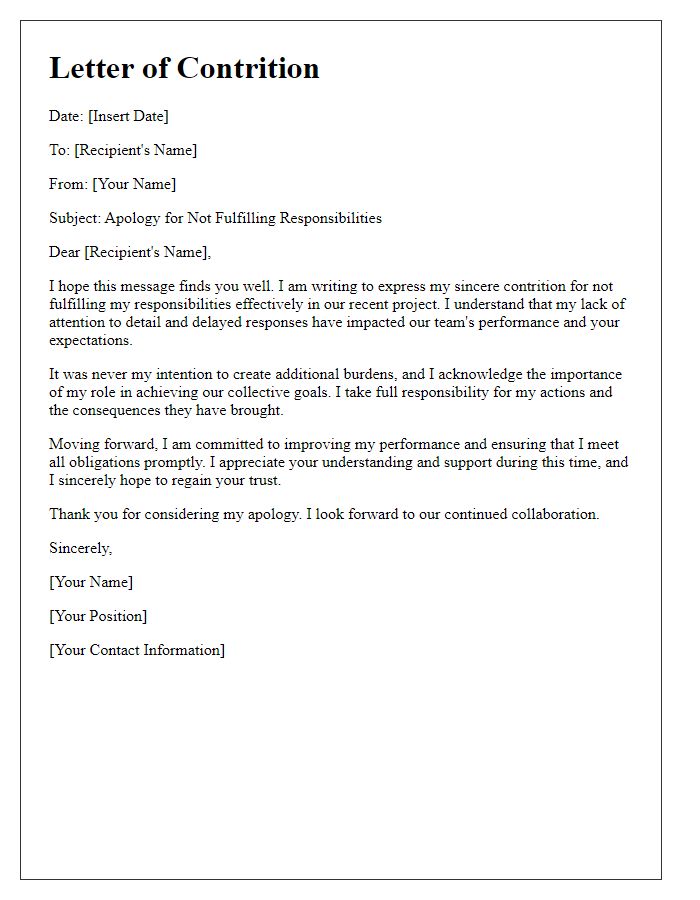
Letter template of acknowledgment for falling short of promised results.
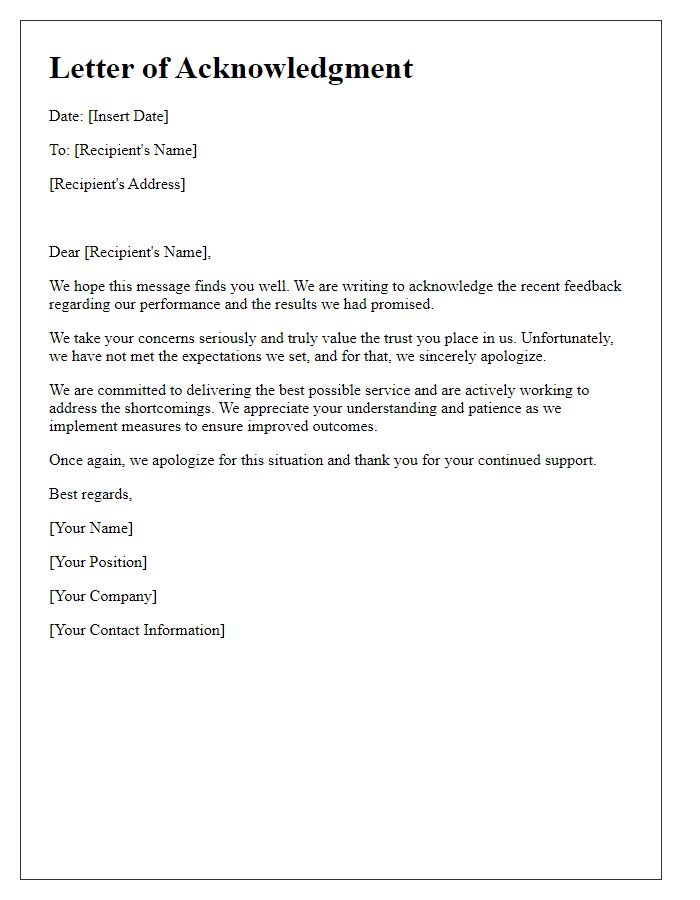
Letter template of gracious apology for unmet goals in a business endeavor.
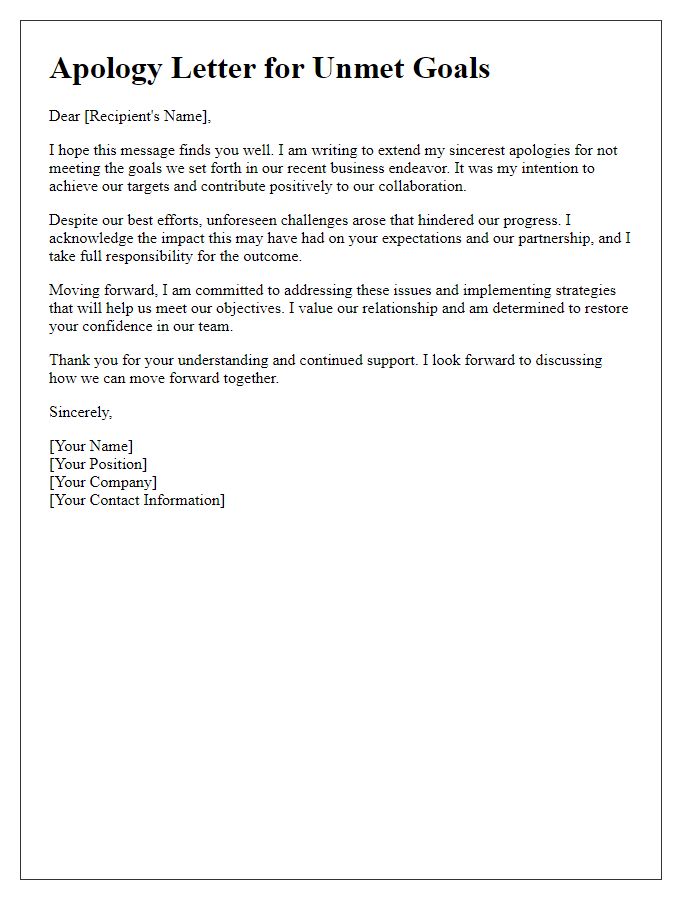
Letter template of responsibility acceptance for not meeting requirements.
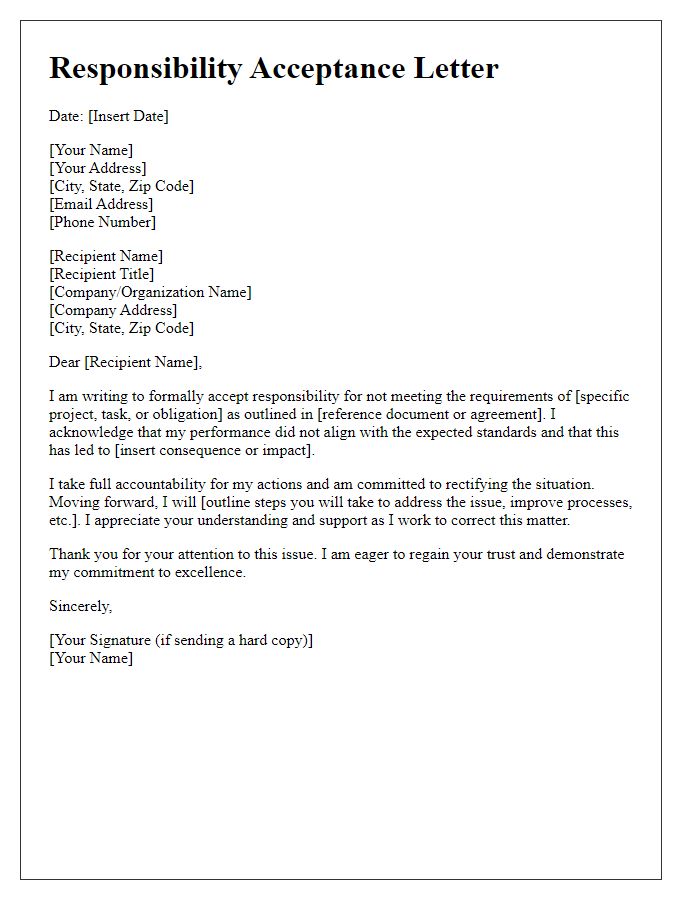

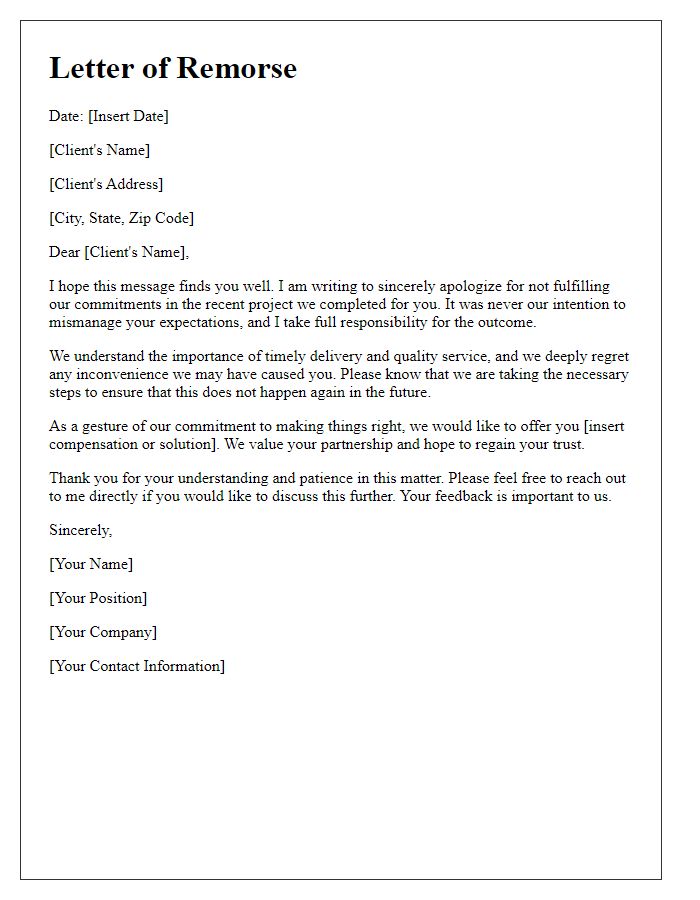
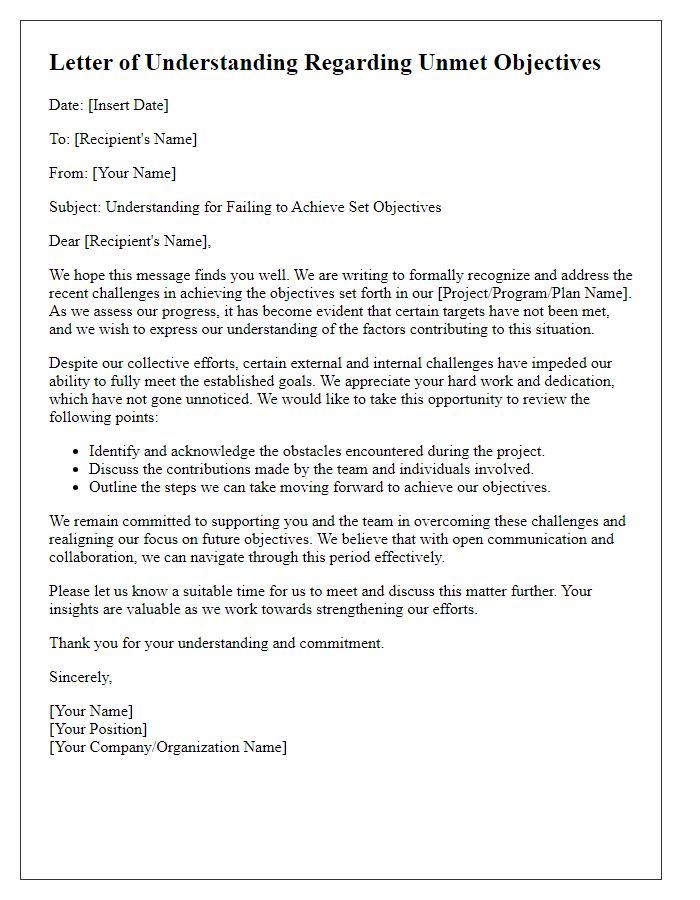
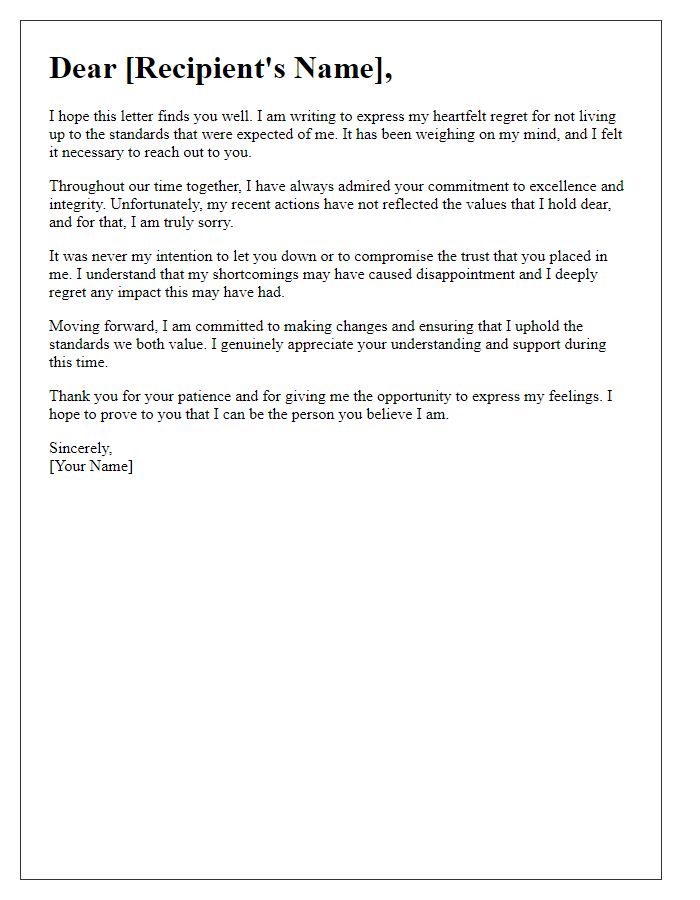
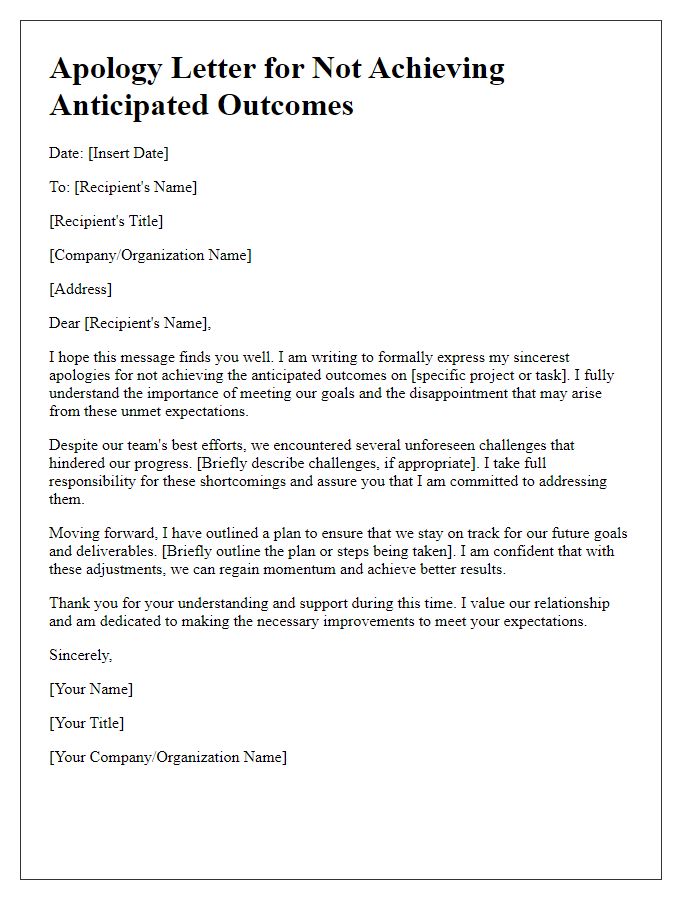


Comments